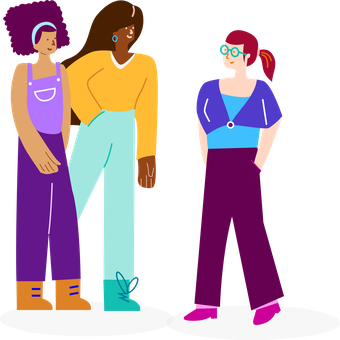In this guest blog on International Women’s Day, Professor Sarah Johnsen reflects on a hard-hitting study about women’s experiences of multiple disadvantage, and emphasises the importance of gender-informed responses.
Published a few weeks ago, the latest report in the influential ‘Hard Edges’ series led by Heriot-Watt University casts light on the extreme level of harm, trauma, and unmet need experienced by women affected by severe and multiple disadvantage. Focusing on women’s overlapping experiences of homelessness, substance use, and involvement with the criminal justice system, it documents horrifying levels of exposure to violence, including sexual violence and domestic abuse.
The stories shared – which are based on in-depth interviews with 60 women in Belfast, Glasgow, Stoke-on-Trent and Swansea – make for a very sobering read.
The study documents the prevalence, nature, and severity of gendered trauma experienced by these women. For most, this dates back to childhood. The report also confirms that many women keep their difficulties hidden until hitting crisis point due to fear, stigma, and a lack of trust. This is especially true for those concerned about the implications of disclosing problems for their current or future access to children who have been removed from their care. Some are prevented from seeking help by a controlling partner. Others do not ask for assistance because they fear encountering men within services or because they have found support services unhelpful in the past.
The study also involved interviews and focus groups with frontline support workers, and local- and national-level stakeholders representing the housing, health and social care, domestic abuse and violence against women and girl (VAWG) sectors. It exposed widespread frustration regarding the way women are often “shunted” between systems catering to just one issue and lack of consideration regarding the effect of trauma on women’s ability to make use of services. Challenges are noted to be especially acute for women who are “dually diagnosed” and where their experiences intersect with other social categorisations such as being from a minoritised ethnic group, having a longstanding physical illness or disability, or being neurodivergent.
On a positive note, the study uncovered pockets of effective, trauma-informed and gender-informed practice. But stakeholders emphasised that availability depends on location in a postcode lottery, with short-term funding threatening sustainability. Many service providers described moving veritable mountains in efforts to break down local barriers for women (and men) affected by severe and multiple disadvantage. Yet, where progress has been made it has usually hinged on the goodwill of highly committed individuals rather than being symptomatic of broader systems change. The successes achieved are often fragile as a result.
The report stresses that change is possible and provides a series of recommendations for local and national policymakers and practitioners. Key amongst these is an imperative to equip services adequately to recognise and respond to gendered trauma. On this issue, there is clear appetite for more women-only services as well as further embedding of gender-informed practice in both female-only and mixed sex services more generally. The report also calls for existing good practice to be emulated more widely and for commissioners to foster conditions enabling providers to operate in a gender-informed way.
Homeless Link’s launch of a framework for embedding a gendered lens in homelessness services is therefore an extremely welcome development. Drawing on evidence regarding ‘what works’, and with input from women with lived experience and frontline services, it provides concrete guidance for the homelessness sector regarding how to commission and deliver gender-informed services, and how to work in collaboration with other services and sectors where needed.
Looking forward, the cold hard fact is that until we get better at spotting and responding to gendered trauma – and the responsibility and risk in responding is more equitably shared across sectors – many vulnerable women will remain trapped in a cycle of exclusion and exploitation.
Professor Sarah Johnsen is the lead author of the latest Hard Edges report. Previously Professorial Fellow in the Institute for Social Policy, Housing and Equalities Research (I-SPHERE) at Heriot-Watt University where the research took place, she is now Professor of Homelessness and Inclusion Health at the University of Edinburgh.
